"Are we diluting or aiming to intensify the concept of beauty queens? If we’re diluting it, has it gone too far already - or will it take 80 queens a year to finally call it excessive?" asked People's Artist Xuan Bac during a roundtable discussion hosted by VietNamNet titled Beauty Queen Overload.

VietNamNet Editor-in-Chief Nguyen Van Ba presents flowers to roundtable guests. Photo: Le Anh Dung
Following three published articles on the topic, Associate Professor Dr. Bui Hoai Son (Standing Member of the National Assembly’s Committee for Culture and Society), People’s Artist Xuan Bac (Director of the Department of Performing Arts - DPA, Ministry of Culture, Sports and Tourism), and journalist Le Minh Toan (Deputy Editor-in-Chief of Tien Phong newspaper and Deputy Head of the Miss Vietnam 2024 organizing committee) participated in the discussion.
Are beauty pageants becoming commercial projects?
Q: “With 30 to 40 beauty contests taking place annually in Vietnam, many believe they’ve been distorted into profit-driven ventures. As advocates for beauty and culture, how do you view this current state of ‘beauty queen inflation’?”
Dr. Bui Hoai Son: The root cause lies in societal demand. We live in an era where enhancing beauty is normalized - from going to the gym to undergoing cosmetic surgery. The market economy follows supply and demand; this explains why beauty contests are proliferating.

Added to this is the overwhelming influence of media. Every aspect surrounding beauty queens becomes a point of public contention. As expectations, curiosity, and controversy collide, the result is a chaotic overload of beauty-related titles.
On the cultural side, many countries honor diverse forms of beauty, including for transgender individuals or people with disabilities. These contestants are celebrated equally. In contrast, Vietnam tends to idolize beauty queens - expecting perfection in appearance, intellect, and morality. This idealization often turns the public into harsh critics at the slightest slip-up.
Journalist Le Minh Toan: The issue is not the number of contests, but the integrity and purpose of each. A regional pageant like “Miss Tea Land” or “Miss Coffee” can still be respectable if it upholds values of truth, beauty, and kindness.
The public is ultimately the editor of these pageants. People are wise enough to distinguish between genuine values and mere show. Regulators, meanwhile, should establish the legal framework - not act as the public’s substitute in making choices.
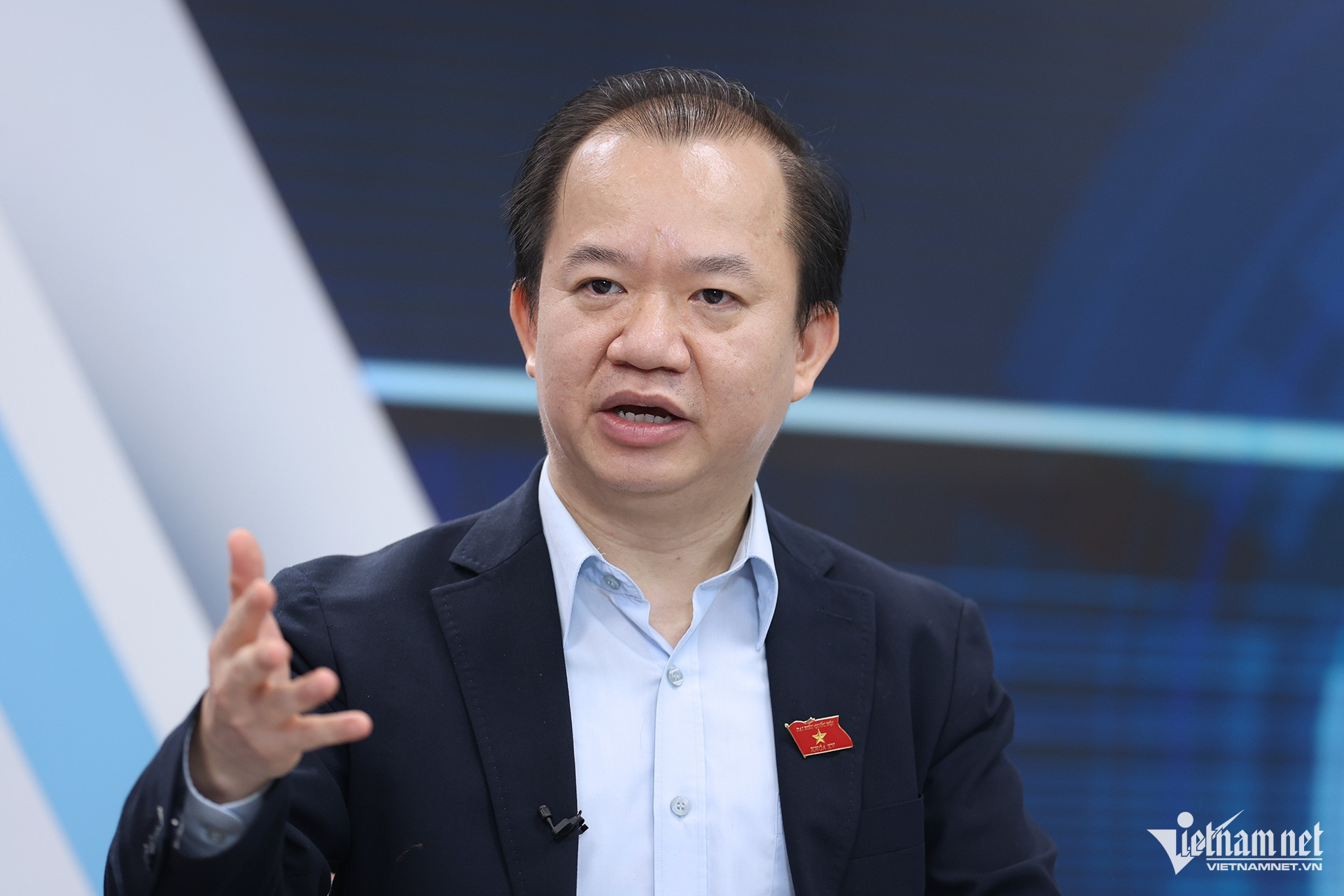
Dr. Bui Hoai Son. Photo: Le Anh Dung
People's Artist Xuan Bac: As both an admirer of beauty and a policymaker, I love beauty queens - because they embody physical grace, intellect, and presence. And I believe women also appreciate beauty, not just men.
On a personal level, I only need one beauty queen - my wife, who’s at home taking care of our three children.
From a broader perspective, yes, there are many beauty queens today. But as Mr. Toan pointed out, quantity isn’t the issue - what matters is whether the purpose of honoring beauty still holds. Does it still represent true, pure beauty that spreads positive values?
According to Decree 144/2020 on performing arts, every beauty or modeling contest must submit a proposal for approval, clearly stating its objectives. But we’re seeing chaos in both titles and contests. I agree with Dr. Son: in a society that values beauty, multiple contests are understandable.
However, from organizers to participants to the audience - we all need a shared set of standards and awareness of what these contests and titles truly represent. Sometimes, one glance at a newly crowned queen prompts comments like, “How did she win with eyes like that?” or accusations of title-buying. These reactions distort the original intent.
As head of the DPA, I can confirm that the Ministry of Culture, Sports and Tourism has received many reports and instructed us to urgently revise Decree 144 - especially the section governing beauty and modeling competitions.
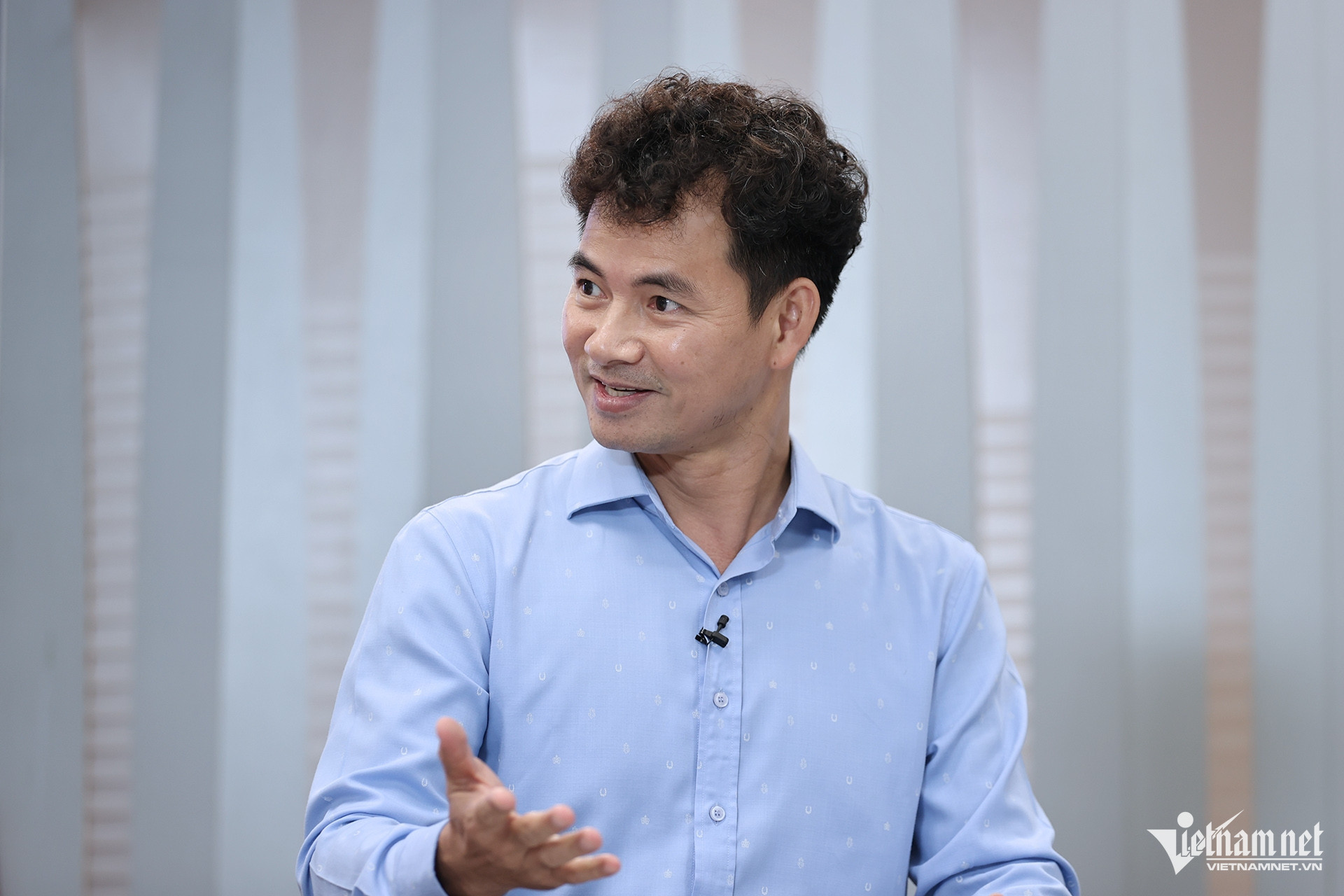
We’re actively collecting opinions from agencies, sectors, and specialists to ensure the new decree suits the current context. Our goal is to offer the government new, effective guidelines.
I must stress the importance of decentralization and timely adjustments. Mishandling these could create loopholes. The field of performing arts is emotionally charged - it impacts society’s consciousness and needs grounded, realistic regulations to foster healthy development.
Is the title being misused for commercial gain?
Q: Mr. Toan, the public has raised suspicions that many beauty pageants are organized mainly to promote sponsors, and even show signs of being “pre-arranged.” As someone directly involved, how do you respond?
Journalist Le Minh Toan: I’d like to share a backstage story from Miss Vietnam 2024. The winner, Truc Linh, only had about USD 24 when she entered the contest. Her family gave her another USD 40 to buy makeup. With such humble means, how could she “buy” the title?
Another contestant from Hue also stood out, but the organizing committee remained fair - those deserving were called. Transparency and integrity are key. If the organizers are ethical and competent, public trust can be preserved.
Dr. Bui Hoai Son: Mr. Toan made an excellent point, but let’s look at the bigger picture. We live in a time of “fake vs. real,” evident in ongoing anti-counterfeit campaigns. Unfortunately, some beauty contests reflect this problem too.
Certainly, there are prestigious contests like Miss Vietnam. But there are also complaints about others. So it’s understandable why the public is skeptical.
Our ancestors said, “Better few but refined than many but shallow.” The issue isn’t numbers, but whether these contests are truly meaningful and credible.
Other countries also hold many pageants, but they approach beauty with diverse standards and don’t idolize titles. In Vietnam, we still value rarity - hence why people remember Bui Bich Phuong as a singular icon. Now, beauty titles are so frequent that you can find a queen just walking down the street.
That’s why the backlash makes sense. But instead of blanket criticism, let’s take a constructive, multidimensional view and call for stronger, more transparent oversight.
I agree with Xuan Bac: Decree 144 must be revised. When it was drafted, no one could foresee today’s rapid cultural shifts. The update must reflect new management approaches and current realities - especially as beauty contests become increasingly sensitive and complex.
I believe, with his experience, Xuan Bac and the DPA will make comprehensive and effective recommendations. This will help develop meaningful pageant brands while filtering out less reputable events.
What makes someone a true national representative?
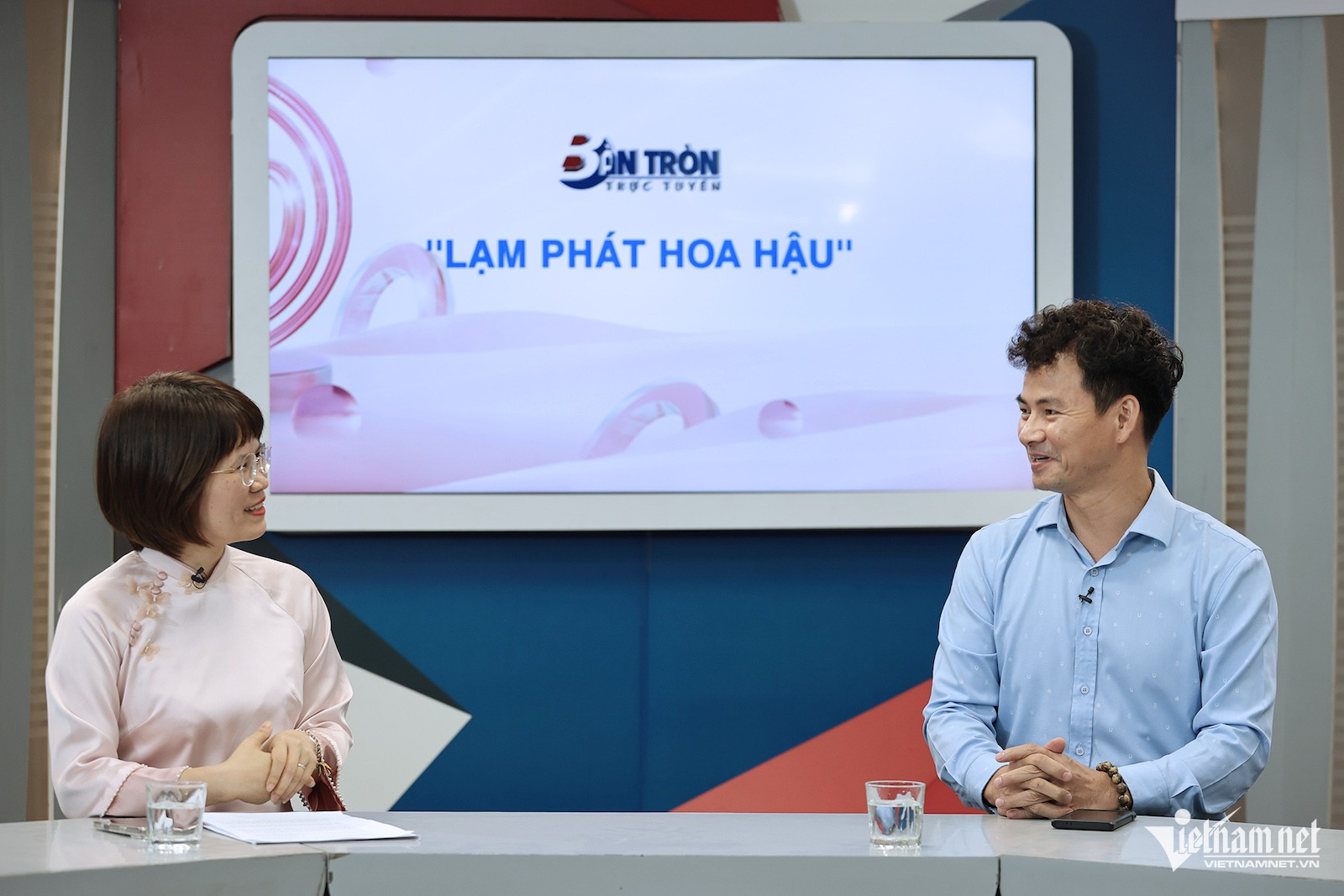
People's Artist Xuan Bac: Nowadays, when we talk about beauty queens, most people think of a beautiful woman - first physically attractive, then intelligent, cultured, and capable of spreading positive values. We yearn for, admire, and celebrate those forms of beauty.
However, there are also beauty pageants that are more localized, confined within small communities. These contests cater to specific groups with unique characteristics or interests, which is entirely normal.
But here, we are referring to national-level beauty titles, which carry the mission of representing the beauty of Vietnamese women. That’s why we must first have a correct perception of beauty before we can discuss how to manage and organize such contests appropriately.
Associate Professor Dr. Bui Hoai Son raised a very insightful point: Are we "diluting" or aiming to "concentrate" the concept of beauty queens? If we’re diluting it, is it diluted enough now - or do we need 80 queens a year to call it diluted?
Conversely, if we aim for concentration, there must be clear value: How many contests and titles per year are sufficient to ensure true honor?
This is not about “worshiping” beauty queens but about honoring beauty and the values it represents. When society identifies those values as worthy of respect and recognition, only then do beauty contests hold meaningful significance.
If everyone can be a beauty queen and contests are held everywhere, the criteria will inevitably change. And when the criteria are unclear, it becomes difficult for society to reach a shared standard in evaluating, recognizing, and respecting such titles.
I'm not saying thin is beautiful or fat is beautiful - that’s a personal aesthetic viewpoint. But if we want a societal standard to recognize and celebrate, there must be clear criteria that align with real-world conditions.
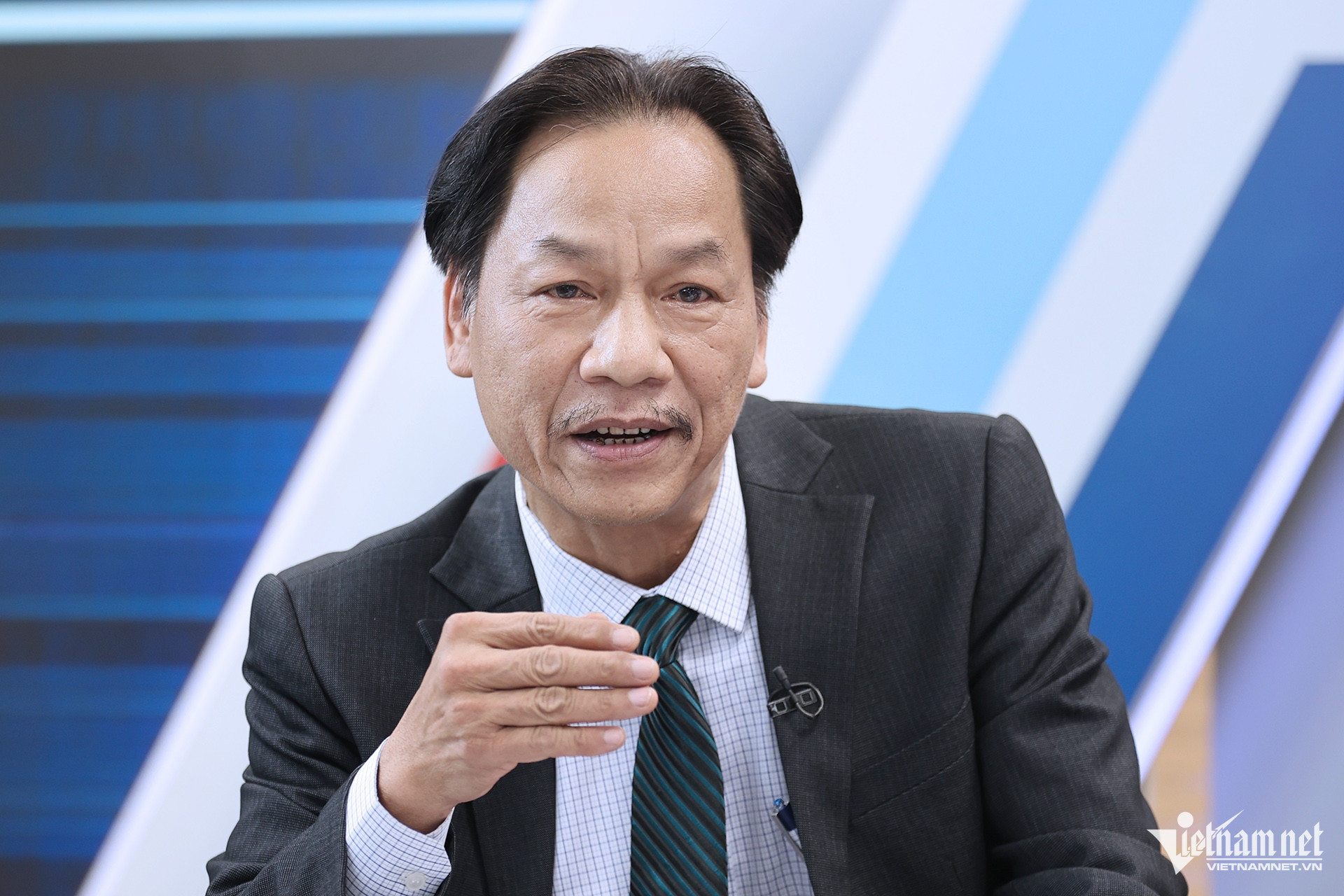
Journalist Le Minh Toan: Before the 1990s, the concept of a “beauty queen” was clearly defined. At that time, a beauty queen was expected to embody traditional values such as diligence, grace, proper speech, and virtue. Tien Phong newspaper, the organizer of the Miss Vietnam pageant, also firmly emphasized from the beginning that beauty must be natural, pure, and radiate from inner character.
Because of this, in the public’s mind, a beauty queen became a fixed ideal. Any deviation, even a small misstep, would immediately trigger mixed reactions from the audience.
Therefore, like any field, if things become too widespread, they need to be reorganized with care and structure. What lacks true value will naturally be eliminated.
Thus, in our discussions, we should approach the issue warmly and constructively, rather than overly harshly. Life itself shows us what deserves to be preserved.
Dr. Bui Hoai Son: We need to start with a fundamental question: Do women need to be honored?
If the answer is no, then there would be no need for beauty pageants or other programs celebrating women. But I believe no one would choose that answer.
The next question is: Which women deserve to be honored? In reality, women from all walks of life deserve recognition because honoring women brings positive value not just to them but also to their families, communities, and society at large.
That’s why we have many forms of recognition, various beauty contests, and different titles designed for women from diverse contexts and backgrounds.
However, for the public and society to engage in meaningful and grounded discussion, clear communication and awareness are key. When people share a correct understanding of the purpose and meaning behind honoring women, discussions about beauty queens and other titles can happen with proper orientation and unity.
Conversely, if everyone interprets the concept differently, applies different criteria, and sets their own standards for “beauty,” then the conversation becomes chaotic. Everyone thinks they are right, and society becomes disoriented and directionless.
Without clear criteria, shared understanding, or a common definition, regulatory bodies will also struggle. Some may say yes, others no - ultimately, this lack of clarity hinders effective governance, making it difficult to formulate policies and manage practical implementation.
Q: In reality, many beauty queens, when appearing in public, reveal a lack of knowledge - especially in behavior, historical and cultural understanding - and even get involved in scandals or questionable social relationships. This can distort cultural and aesthetic values in the eyes of the public. Some argue that if this trend continues, we may unintentionally encourage a segment of young people to become materialistic and chase after empty fame.
Dr. Bui Hoai Son: There are three main reasons for this: The quality of the pageants. The core issue is branding - the reputation and credibility of a competition determine its quality. A well-established brand will attract high-caliber contestants and ensure that a worthy winner is chosen. In contrast, pageants that prioritize financial gain over quality will inevitably face problems.
The awareness and quality of the contestants, especially the winners. They must have a clear and comprehensive understanding of the position they hold, and accordingly behave in a manner worthy of the title.
Society’s perception. The public should adopt a more compassionate view of beauty queens. Someone who was just a regular person yesterday suddenly becomes Miss Something today - they can’t instantly become perfect. We shouldn’t expect flawless behavior or statements right away. By recognizing that they are both beauty queens and still human, we can develop a more objective and humane perspective.
People's Artist Xuan Bac: The issue lies in how we treat cultural and performing arts products (NTBD). If we place them in a market mechanism and consider them as “products,” they are special ones. These are not ordinary goods to be traded in markets; they directly affect human emotions, awareness, and societal consciousness.
I agree with Mr. Son that if we collectively raise public awareness about social issues, we can reduce negative commentary on cultural products - which are inherently unique.
Because of their special nature, we need to approach them differently and not take them lightly. Unfortunately, many people today treat valuable cultural products - ones that should be cherished and protected - as ordinary goods for casual exchange or sale. That is a dangerous trend.
Besides the specific standards set by smaller groups or organizations - like Tien Phong newspaper's long-standing and reputable pageant - from a state management perspective and as individuals who care about public opinion and social discourse, we also bear the responsibility of providing guidance.
Clearly, beauty pageants should not be dragged into the competitive chaos of market-like environments. There needs to be structured editing, organization, and oversight to ensure appropriateness, allow growth, and development - without neglecting the role of state management.
This is not just about economic growth but also about cultural and moral development - ensuring we are not diluted by globalization but instead preserve modern Vietnamese identity. This is also a key objective emphasized by the Party and State in cultural development: to leverage internal strengths and contribute to the nation's overall power.
Without proper and sound direction, I fear that many consequences may arise, and the original goals will not be achieved.
Q: With Decree 144 currently in effect, more opportunities have opened up for Vietnamese beauty queens to participate in international pageants. However, this also presents risks. There have been instances where individuals who were not qualified or deserving still represented the country, ultimately damaging the reputation of Vietnamese women and the image of Vietnam on the international stage. Besides tightening and reviewing domestic contests, what measures or management mechanisms will the Performing Arts Department implement for contestants representing Vietnam in international beauty competitions?
People's Artist Xuan Bac: I’ve only recently taken up the role of Director of the Performing Arts Department, but prior to this, as someone with long-standing experience in the performing arts and who has managed a national-level art unit, I’ve always paid close attention to this issue.
I’ve seen headlines like: “Vietnam’s beauty representative battles on the international stage,” or “Vietnamese beauty shines in global pageants.” But the real question is: Who recognizes them as the official “representative of Vietnamese beauty”?
Without an official standard, it would be more accurate to call them “a representative of Company A from Vietnam” rather than automatically claiming they represent the country.
From your question, Mr. Ha Son, I’d like to raise a broader point: For titles such as “beauty queen” or more broadly, someone claiming to represent Vietnamese beauty on an international level, shouldn’t we have a clear set of standards? Should we establish a screening and evaluation process?
Because once someone bears the title “representative of Vietnam,” they must embody the stature, intellect, and cultural identity of the modern Vietnamese woman. This should be a blend of modern, innovative beauty with deep traditional roots and cultural heritage passed down from our ancestors.
I raise this matter in hopes of hearing more perspectives from Mr. Son and Mr. Toan, who both have a broad and practical view of this field.
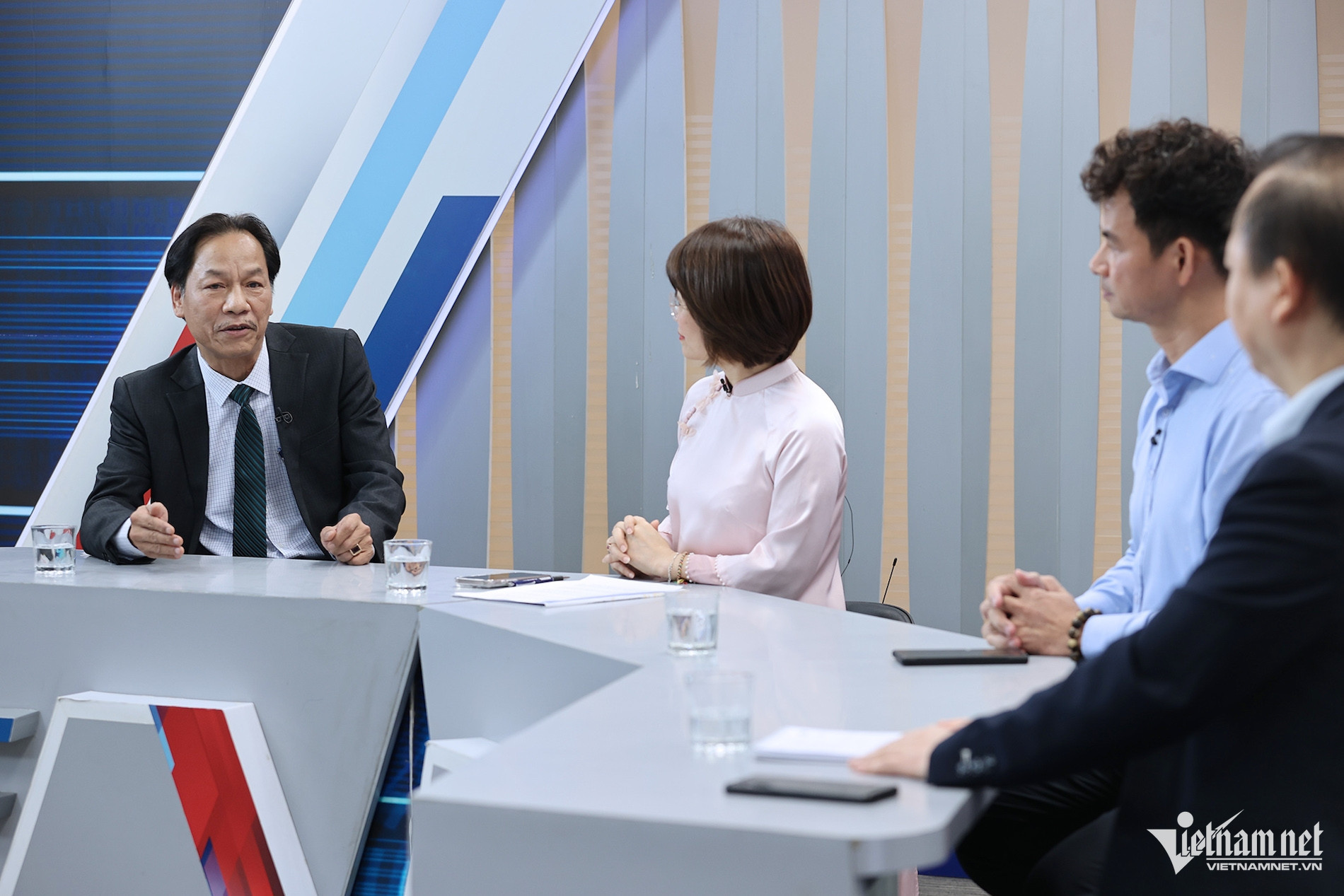
Journalist Le Minh Toan: From the perspective of Tien Phong newspaper, which has organized Miss Vietnam for many years, I believe Mr. Xuan Bac has raised a very valid point: What defines a “representative of Vietnamese beauty”?
Since 1988, we have been officially licensed by the Ministry of Culture and Information to organize the Miss Vietnam pageant. Since then, all intellectual property rights and the brand of "Vietnam’s beauty representative" have been registered and protected. That’s why the public often refers to Miss Vietnam as the “main queen” - and it’s a justified title.
As for other pageants, I’m unsure about how they are licensed or what their content entails, as I haven’t seen their legal documents. But the current reality is that many titles are being attached without regulation, leading to a situation of "title chaos."
For major international pageants like Miss Earth, Miss Grand International, Miss Intercontinental… the local licenses are usually held by a few entertainment companies in Vietnam. If any other organization wants to send a contestant, they must go through these companies. This distorts the process and lacks transparency.
I believe it’s time to review all licenses for beauty pageants to clearly determine who is truly representing what, and whether they deserve to bear the title of “representative of Vietnam.”
Dr. Bui Hoai Son: Society is placing increasing value on branding - everyone wants to build a strong identity for their events. Some organizers, driven by vanity, label small-scale contests with grand titles like “National Beauty Queen,” “Global Miss,” or “Miss World”… These names are mainly used to elevate their event’s profile and attract media and sponsorship.
Another issue is that many international beauty pageants do not go through Vietnam’s cultural management authorities. They simply connect with a local company, hold internal auditions, and choose someone to compete abroad. These companies, in turn, use the prestige of international competitions to enhance their own reputation. This approach makes the process of selecting Vietnam’s representative opaque and easily exploited.
Therefore, when amending Decree 144, we must include clear regulations regarding the selection of candidates for international pageants. This is a matter tied to national reputation. We need clear criteria on who is eligible to represent Vietnam and which organizations are authorized to make that selection - establishing a transparent legal framework. Once that’s in place, local event organizers will be required to comply, and even international partners will have to respect our rules.
I support the view that the cultural and artistic sector, due to its sensitivity, must be carefully and systematically managed. Our goal should be that international participation not only complies with legal standards but also enhances the value and image of Vietnam.
People's Xuan Bac: We are fully committed to reviewing, revising, and supplementing Decree 144. However, this will only happen after comprehensive consultations with experts, managers, journalists specializing in this field, and representatives from contest-organizing units.
After this roundtable, I will arrange meetings with journalists and organizers to gather more insights - because I believe every organizer wants their pageant to be successful, build a strong brand, and achieve real impact - not just hold an event for show.
So the real question is: Has the current legal framework truly supported sustainable development for these events? If not, what adjustments are needed to ensure both effective state management and room for creativity, innovation, and efficiency?
I believe a legal document only holds value if it is vibrant, practical, and a driver of progress. In today’s rapidly changing landscape, even after being enacted, we must continue monitoring, updating, and supplementing regulations to promptly address new issues.
We hope that with these serious preparations, the public will soon no longer have to use phrases like “beauty queen chaos” or “pageant overload.” Instead, there will be trust in a structured, high-quality beauty pageant system that genuinely honors the image of the Vietnamese woman.
VNN